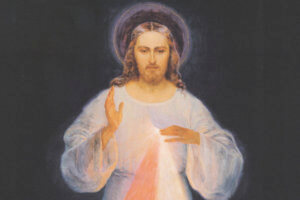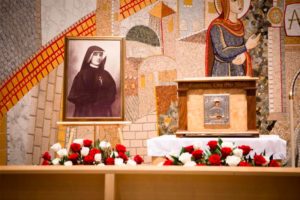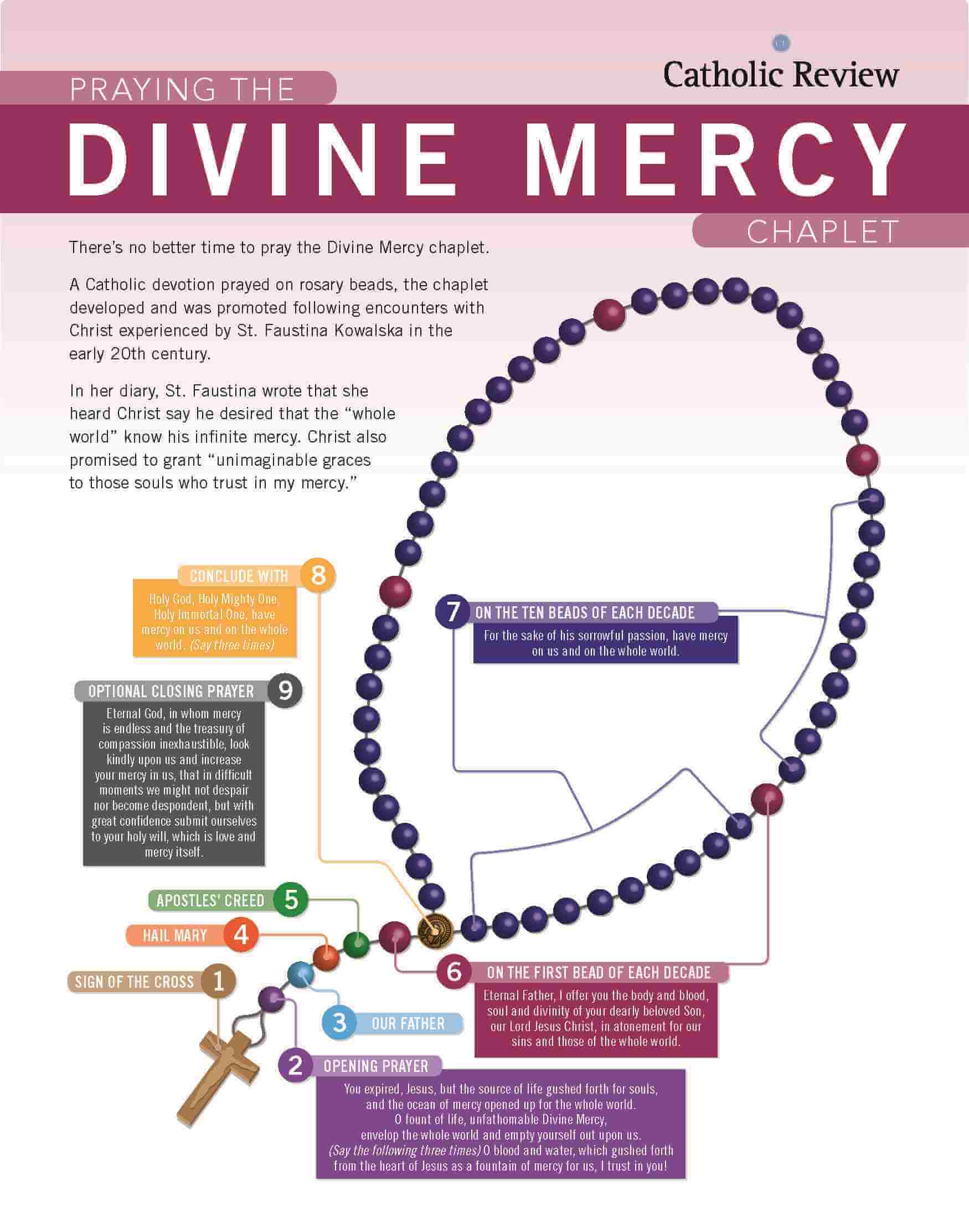
Baltimore Archbishop William E. Lori, supreme chaplain of the Knights of Columbus, will celebrate a special livestreamed Mass for Divine Mercy Sunday on April 19 at 2 p.m. at the Basilica of the National Shrine of the Assumption of the Blessed Virgin Mary in Baltimore.
The archbishop will also join members of the Sisters of Our Lady of Mercy, St. Faustina Kowalska’s religious community, in praying the Divine Mercy Chaplet following the liturgy.
The Mass and Divine Mercy Chaplet will be livestreamed on the Knights of Columbus’ YouTube channel here, on the YouTube channel of the St. John Paul II National Shrine here and on the Archdiocese of Baltimore’s online Mass page here.
Earlier in the day, the archbishop will celebrate the 11 a.m. Divine Mercy Mass at the Cathedral of Mary Our Queen in Homeland, which will also be livestreamed on the archdiocese’s online Mass page here.
St. Faustina was a 20th-century Polish nun to whom Jesus appeared and asked for a special feast devoted to Divine Mercy to be celebrated on the Sunday after Easter. The psalm and Gospel reading for the liturgy on that day focus on mercy, on the forgiveness offered by God for those who are truly sorry for their sins.
In her diary, St. Faustina recounted Jesus’ request: “My daughter, tell the whole world about My inconceivable mercy. I desire that the Feast of Mercy be a refuge and a shelter for all souls, and especially for poor sinners. On that day the very depths of My tender mercy are open. I pour out a whole ocean of graces upon those souls who approach the fount of My mercy.”
St. John Paul II established the first Sunday after Easter as the Feast of Divine Mercy on April 30, 2000, the same day he canonized St. Faustina.
St. Faustina’s sisters today share the message of Divine Mercy at the St. John Paul II National Shrine in Washington, D.C. Holy Rosary in Fells Point is home to the Archdiocese of Baltimore’s official Divine Mercy Shrine.
Contrition

Divine Mercy Sunday is a day when many Catholics go to confession. Because of the coronavirus pandemic, however, the sacrament is currently only available in the Archdiocese of Baltimore to those whose death is imminent.
Archdiocesan leaders encouraged the faithful to make acts of “perfect contrition,” as suggested by Pope Francis, when they are unable to go to confession.
According to the Catechism of the Catholic Church, contrition is called “perfect” when it “arises from a love by which God is loved above all else.” Such contrition remits venial sins and obtains forgiveness of mortal sins if it “includes the firm resolution to have recourse to sacramental confession as soon as possible,” according to the catechism.
Pope Francis said the message of the catechism is “very clear.”
“If you cannot find a priest to confess to, speak directly with God, your father, and tell him the truth,” the pope explained. “Say, ‘Lord, I did this, this, this. Forgive me.’ and ask for pardon with all your heart.”
Make an act of contrition, the pope said, and promise God, “‘I will go to confession afterward, but forgive me now.’ And immediately you will return to a state of grace with God.”
“As the catechism teaches,” Pope Francis said, “you can draw near to God’s forgiveness without having a priest at hand. Think about it. This is the moment.”
On March 20, the Apostolic Penitentiary issued a decree offering a special indulgence to people suffering with COVID-19, to those in quarantine, to medical personnel caring for coronavirus patients and to all those who are praying for them.
An indulgence is a remission of the temporal punishment a person is due for sins that have been forgiven.
Praying for the dying who cannot receive the sacrament of anointing, the decree said the church entrusted them to God’s mercy and drew on the merits of the communion of saints to grant a plenary indulgence to Catholics on the verge of death, as long as they “habitually recited prayers during their lifetime.”
The decree granted a plenary or full indulgence to all Catholics in the hospital or under quarantine because they have tested positive for COVID-19 if they are sorry for their sins and prayerfully watch or listen to Mass, the recitation of the rosary or a pious practice such as the Way of the Cross.
If that is not possible, the decree said, they should at least recite the Creed and the Lord’s Prayer and invoke the help of Mary, “offering this trial in a spirit of faith in God and of charity toward others” and with a determination to go to confession, receive the Eucharist and pray for the intentions of the pope as soon as possible.
“Health care workers, family members and those who, following the example of the good Samaritan, assist those sick with the coronavirus, exposing themselves to the risk of contagion,” also receive the plenary indulgence, it said.
The decree also grants the indulgence to any Catholic who visits the Blessed Sacrament, “reads sacred Scripture for at least a half hour,” recites the rosary or the Divine Mercy Chaplet “to implore Almighty God for an end to the epidemic, the relief of those who are afflicted and eternal salvation for those the Lord has called to himself.”
The faithful can claim the indulgence for themselves or offer it on behalf of someone who has died.
In celebrating previous Divine Mercy Sundays, Archbishop Lori said the day provides a “wonderful opportunity to experience more deeply the peace of Christ and the joy of receiving his mercy anew.”
When he offers the special Mass April 19, the archbishop will do so in the same basilica in which Father Michael McGivney, founder of the Knights of Columbus, was ordained to the priesthood in 1877.
See below for a guide to praying the Divine Mercy Chaplet. For more about the sacrament of Reconciliation and indulgences, click here. For additional resources for celebrating Divine Mercy Sunday, click here.
Email George Matysek at gmatysek@CatholicReview.org.


